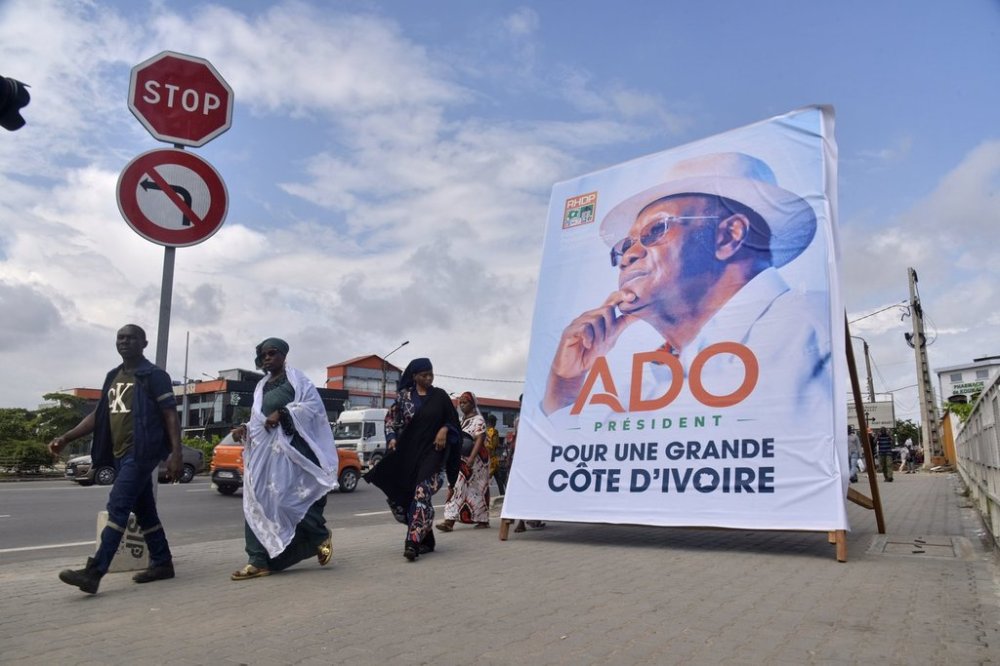Ivory Coast arrests 237 protesters amid rising tensions before presidential election
Advertisement
Read this article for free:
or
Already have an account? Log in here »
To continue reading, please subscribe:
Monthly Digital Subscription
$0 for the first 4 weeks*
- Enjoy unlimited reading on winnipegfreepress.com
- Read the E-Edition, our digital replica newspaper
- Access News Break, our award-winning app
- Play interactive puzzles
*No charge for 4 weeks then price increases to the regular rate of $19.00 plus GST every four weeks. Offer available to new and qualified returning subscribers only. Cancel any time.
Monthly Digital Subscription
$4.75/week*
- Enjoy unlimited reading on winnipegfreepress.com
- Read the E-Edition, our digital replica newspaper
- Access News Break, our award-winning app
- Play interactive puzzles
*Billed as $19 plus GST every four weeks. Cancel any time.
To continue reading, please subscribe:
Add Free Press access to your Brandon Sun subscription for only an additional
$1 for the first 4 weeks*
*Your next subscription payment will increase by $1.00 and you will be charged $16.99 plus GST for four weeks. After four weeks, your payment will increase to $23.99 plus GST every four weeks.
Read unlimited articles for free today:
or
Already have an account? Log in here »
ABIDJAN, Ivory Coast (AP) — At least 237 people were arrested Saturday in Ivory Coast during a protest against what activists called the country’s authoritarian drift, according to a statement by the Minister of the Interior and Security on national television.
Protesters reported the use of tear gas and makeshift roadblocks near the planned start of the march.
Ivory Coast, a nation of 32 million and the largest economy in Francophone West Africa, is due to hold a presidential election in two weeks. Earlier this year, four main opposition figures, including former President Laurent Gbagbo and former Credit Suisse chief executive Tidjane Thiam, were barred from running by the electoral commission.

Ivory Coast’s President Alassane Ouattara, who has been in power since 2010, announced his intention to run for a fourth term earlier this year, in a controversial move following a 2016 constitutional change that removed the presidential term limit.
The day before the protest, the prefect of Abidjan declared that all marches in the capital on Saturday were illegal because of the need to maintain order during the election period.
“All these people will be held accountable for their actions,” Gen. Vagondo Diomandė, the Minister of the Interior and Security said, reiterating that the protest was illegal.
Elections in Ivory Coast have usually been fraught with tension and violence. When Ouattara announced his bid for a third term, several people were killed in election violence.
Ouattara is the latest among a growing number of leaders in West Africa who remain in power by changing constitutional term limits. He justified his decision to run again by saying that the Ivory Coast is facing unprecedented security, economic and monetary challenges that require experience to manage them effectively.
Over the past decade, groups linked to al-Qaida and the Islamic State group have been spreading from the Sahel region into wealthier West African coastal states, such as Ivory Coast, Togo and Benin.

